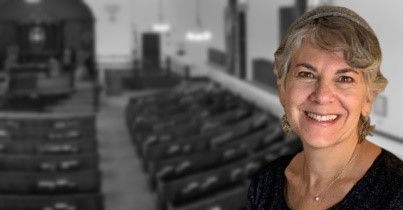Written by: Rabba Kaya Stern-Kaufman

Gut Shabbes, gut Yontiff! Tonight, unlike most Friday nights, we won’t be singing L’kha Dodi. However, I want to bring our attention to an intriguing line from that beloved piyut; sof ma’aseh b’machshava techila- the end is embedded in the beginning. This concept appears as well in the Yigdal poem where God is described as mabit l’sof davar b’kadmato: God sees the ending in the beginning. While this appears to be an esoteric statement, it also contains a very practical and useful idea. In my previous career as a psychotherapist I was taught that one must take special care in noting all the details of the first session with a client. Why? Because every issue that will eventually arise in the course of treatment will be expressed in some form, in that very first meeting. With that in mind, tonight as we begin our 25 hours of reflection, fasting and prayer, I turn our attention to the end of the holiday, to the book of Jonah, which we will read tomorrow afternoon as we count the final hours of our fast. The end is embedded in the beginning.
Today as we are about to enter our Yizkor Service, I would like to talk with you about memory. Yizkor means remembrance and these High Holy Days are described by our sages of old, as both a time of remembering and a time of judgment. Before we can plant seeds for the new year, we must look back and take stock.